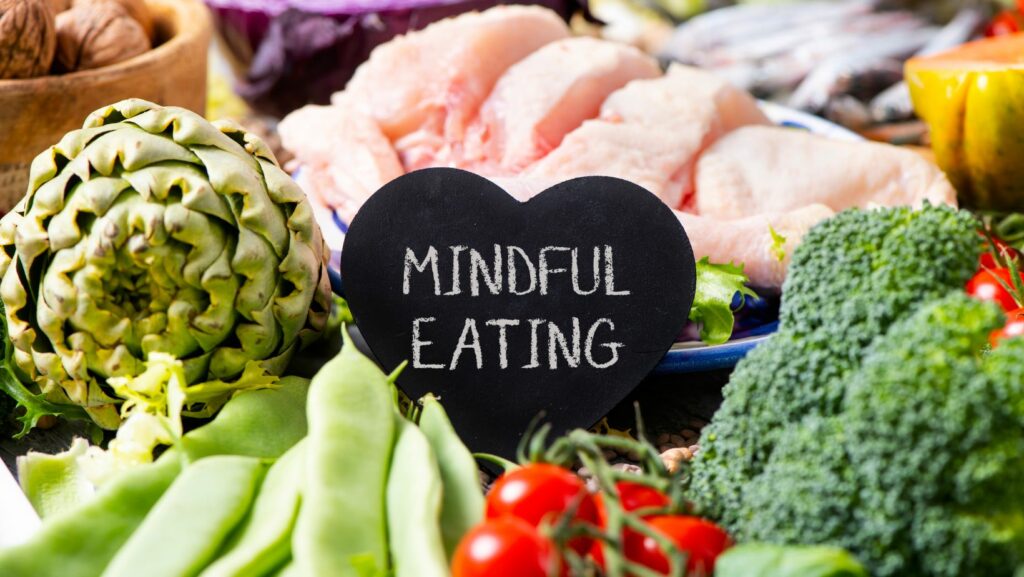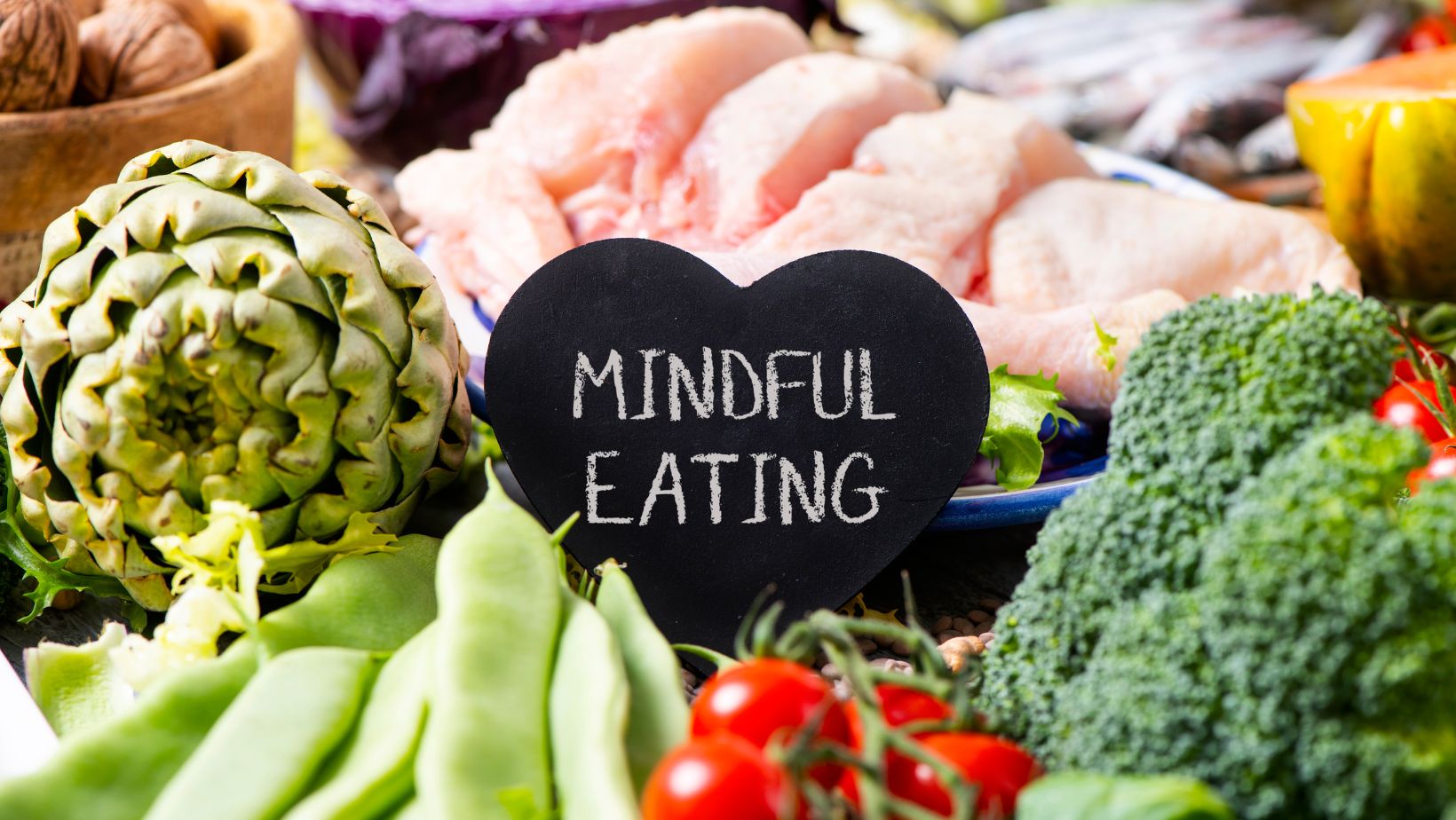Our relationship with food in today’s fast-paced society has developed beyond a purely physiological need. Food exceeds its basic function as a source of nutrition and extends into many areas of our existence, such as culture, emotion, and social interaction. With the goal of assisting you in achieving a harmonic balance between nutrient intake and overall well-being, we will examine the nuances of developing a positive relationship with food in this in-depth blog.
What is Mindful Eating?

Mindful eating is an approach to consuming food that involves a heightened awareness of your eating habits and the sensory experience of eating
Understanding the Significance of Mindful Eating
Food is required by your body as fuel. However, it is critical to remember that food is more than just this physiological component. Food holds an emotional weight as well, providing comfort, invoking nostalgia, channeling love, and frequently functioning as a coping technique or a method of celebration. In essence, food serves several functions in our life.
The Advantages of Mindful Eating
Adopting mindful eating has several significant advantages. It can have a great effect on your mental and emotional health in addition to your physical health. Here are a few significant benefits:

- Better Digestion: You’re more likely to chew your food completely and eat more slowly when you eat with awareness. As a result, the likelihood of experiencing intestinal pain is decreased.
- Weight Control: By encouraging improved portion management and lowering overeating, mindful eating can help you keep or reach a healthy weight.
- Emotional Health: For controlling emotional eating and lowering overeating brought on by stress, mindful eating can be a very effective approach.
- More satisfied with the food: You can get greater enjoyment from your meals and lessen the desire to overeat if you appreciate each bite.
How to Develop Mindful Eating: 10 Proven Strategies
- Challenge Diet Culture: Recognize that diet culture, a huge business that promotes unhealthy connections with food, is frequently where the problem resides when addressing the challenge of diet culture. Leaving this culture is the first step in developing a better relationship with food.
- Seeking Professional Advice: Think about working with a therapist or an intuitive eating specialist. These experts can help you identify the root reasons for your food-related worries and provide individualized self-care plans.
- Embrace Mindful Eating: By engaging in mindful eating, you may get in touch with your body’s natural intelligence. Recognize your body’s signs of hunger and fullness so you may decide what and how much to eat with knowledge. Accept the happiness that eating may offer you.
- Release Nutritional Fixation: Let go of the anxiety and guilt associated with food and relinquish the obsession with nutrition. Constantly fretting over nutritional details does not necessarily lead to improved health. Grant yourself permission to savor food without harsh judgments.
- Watch Your Language: Pay close attention to the language you use when discussing food. Terms such as “clean,” “junk food,” “forbidden,” or “superfood” can shape your relationship with food. Developing awareness of these judgments can reduce their influence over you.
- Take Culinary Adventures: Gradually reintegrate foods that you may have previously labeled as “off-limits.” Replace judgment with curiosity. Explore the sensory aspects of eating and cherish the memories associated with various foods.
- Engage in Supportive Communities: Find a group of people who are on the same road as you. Movements like Health at Every Size (HAES) can help clarify common misconceptions about food and body image and provide insightful information.
- Keep Your Eating Habits Consistent: Make sure you eat balanced meals throughout the day, including a filling breakfast. Skipping meals might cause unpredictable eating patterns and eventual overindulgence.
- Practice Self-Love: If you occasionally indulge, be gentle to yourself. Everyone has moments when they indulge. Put your attention on feeding yourself properly and getting back to your usual eating schedule.
- Curate Your Social Media Feed: Pay attention to the social media material you consume, especially when it comes to diet and well-being. Create a body-inclusive feed by adding uplifting material. Participate in groups that support body positivity and self-acceptance.
Conclusion
Mindful eating is a lifestyle that promotes a better connection with food; it is not a diet. You may change your eating habits, enhance your wel-lbeing, and appreciate the delight of every meal by adopting five easy steps into your daily routine.
Frequently Asked Questions (FAQs)
- How soon may one expect to experience the advantages of mindful eating?
- Although the advantages of mindful eating are seen quite early, the most notable effects come from long-term regularity.
- Is there a meal that I can use to practice mindful eating?
- Yes, whether it’s a salad or your preferred dessert, you can practice mindful eating with any sort of food.
- Can eating mindfully help you with food intolerances or allergies?
- Although mindful eating cannot treat allergies or food intolerances, it may increase your awareness of how different foods affect your body and help you make more educated food decisions.





